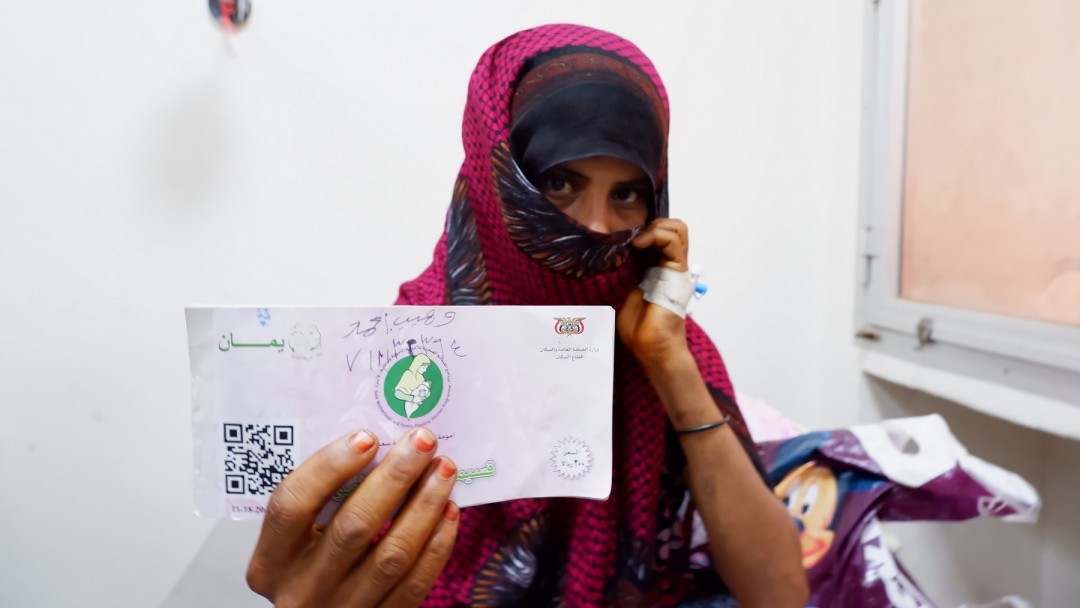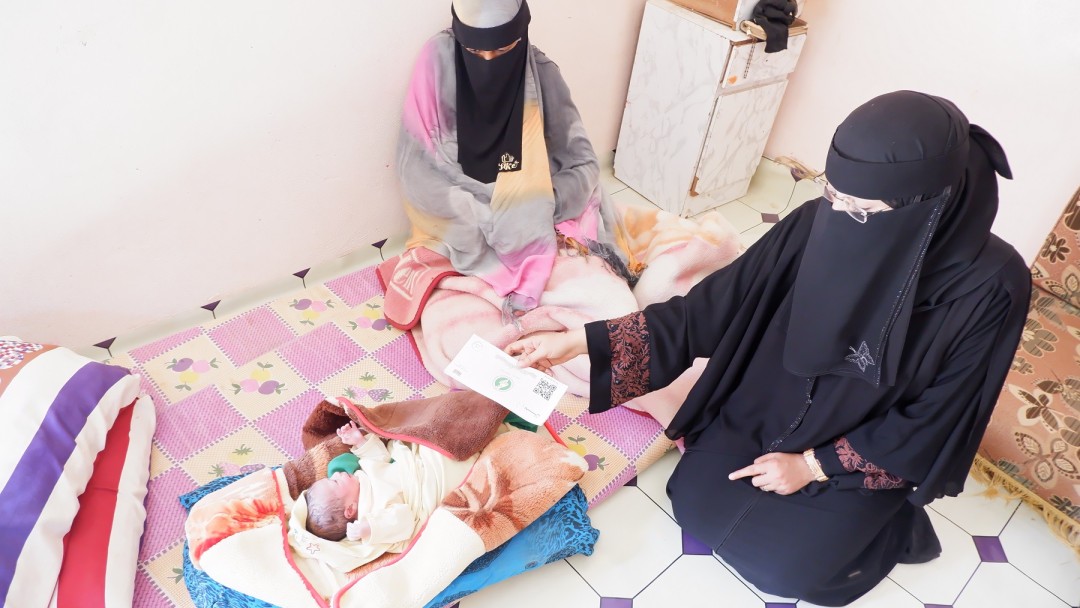News from 2021-04-07 / KfW Development Bank
Yemen – a country in crisis
KfW Development Bank supports the health sector in Yemen

For the last six years, the Iran-backed Huthi rebels have been waging a war against the internationally recognized government of President Abed Rabbo Mansur Hadi, who is backed by a military alliance led by Saudi Arabia. Saudi Arabia announced a ceasefire at the end of March - negotiations are faltering. And with every day that the fighting continues, the suffering of the people, especially the children, worsens. For the state is barely functioning - in one of the poorest countries in the world. Around 80% of the population - 24 million people - were already dependent on humanitarian aid at the beginning of 2019.
A health system - already very weak before the war - exists only in rudimentary form. Almost 20 million people have no access to basic health services. Cholera and dengue fever are widespread. Medical infrastructure has been partially destroyed, importing medicines and medical equipment is difficult. COVID-19, another pathogen, was added to the list last year, hitting a severely malnourished and vulnerable population. Little testing is done, there are no reliable figures. This leads to great uncertainty among people and in health facilities, and often patients with symptoms are not treated.
Vouchers for pregnant women and mothers with small children
In this critical situation, KfW Development Bank, on behalf of the German Federal Ministry for Economic Cooperation and Development (BMZ), has been stepping up its involvement in the health sector since last year: financing agreements for EUR 11 million were signed with the Yemeni Yamaan Foundation for Health and Social Development in 2020 and 2021. Vouchers for safe motherhood and childbirth are distributed to poor women in three rural governorates. The Yamaan Foundation, a Yemeni non-profit organisation, was established in 2010 with the support of KfW to adequately address and advance the issues of reproductive health and family planning. Safe Motherhood voucher booklets are distributed to pregnant women and can be redeemed to provide transport to hospitals or health posts, pre- and post-natal check-ups, skilled birth attendance and treatment in case of complications. Malnutrition among many pregnant women increases the risk of maternal and infant mortality; babies born already underweight have a difficult start in life.
In this project, too, the measures are adapted to the pandemic: the voucher distributors and the counsellors (via a hotline) are trained to deal with COVID-19, as are the volunteers in the communities. They provide information on precautionary measures and the relevant hygiene rules. In addition, there will be broad-based campaigns to raise awareness about COVID-19: Loudspeaker announcements in mosques, information on rubbish trucks, taxis and buses, radio and TV spots. The Yamaan Foundation will provide all workers with appropriate protective equipment.

Vouchers for long-term family planning are also passed on. Family planning is an important topic in Yemen - but often a taboo in the conservative Muslim-dominated society, especially in rural areas. Although the fertility rate has fallen in recent years - it currently stands at 3.8 (2019) - it is still very high. Many women want longer intervals between births and also fewer children.
Hospitals and health stations - also for COVID-19 patients
Together with the United Nations for Project Services (UNOPS), KfW is rehabilitating and building hospitals and isolation wards in the governorates of Lahj, Aden, Hadramout and Al Mahweet. A total of EUR 45 million has been pledged for two phases up to December 2020. Among other things, isolation and dual-use stations will be supported in order to improve the care of COVID-19 patients in the country. Specific needs to contain the virus will be addressed: Separation of reception and waiting rooms as well as treatment rooms for mild and severe courses, equipment with medical devices. What does "dual-use wards" mean? This is where potential isolation rooms are set up in large and small health facilities, which are available for patients in case infection numbers should rise rapidly in the affected region. After the COVID pandemic, they can continue to be used. In all facilities, the water supply will also be improved, sanitation facilities should function everywhere, clinical waste should be disposed of adequately and electricity supply should be ensured. The staff in the supported facilities will take part in training courses, some of which will be offered by the Deutsche Gesellschaft für Internationale Zusammenarbeit (GIZ) GmbH.
In addition to the health sector, KfW Development Bank is involved in water supply, rural irrigation, education and the microfinance sector in Yemen; in many projects, one of the goals is to create income opportunities. In these areas, KfW cooperates with the Yemeni Social Fund for Development (SFD), UNICEF, the Food and Agriculture Organisation and the World Food Organisation.
Further information

Share page
To share the content of this page with your network, click on one of the icons below.
Note on data protection: When you share content, your personal data is transferred to the selected network.
Data protection
Alternatively, you can also copy the short link: https://www.kfw-entwicklungsbank.de/s/enzBWrMC.CdbA
Copy link Link copied